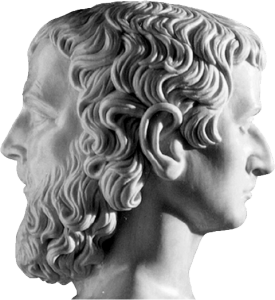









This episode is a very late addition to the series “In Search of the Soul,” looking at the various options that exist in philosophy of mind.
In the original five part series I was very conscious of the fact that I was leaving out the view of Aristotle and Thomas Aquinas, and this addendum is my penance for that fact. As promised in the episode, here are just a few suggestions for further reading, from authors who defend “hylemorphic dualism.”
David Oderberg, Real Essentialism
David Oderberg, “Hylemorphic Dualism” in Ellen Paul, Fred Miller and Jeffrey Paul (eds), Personal Identity
Edward Feser, Philosophy of Mind: A Beginner’s Guide
Podcast: Play in new window | Download
UPDATE: Here the whole series, now that it is complete: Part 1 Part 2 Part 3 Part 4 Part 5 Revisited





 I’m delighted to announce that in December 2014 the Ashgate Research Companion to Theological Anthropology will be published, featuring a chapter from me called “The Mortal God.” The chapter is about how a doctrine of the incarnation might look coupled with a materialist view of human beings. Theological anthropology is about coming up with a view of human persons from a decidedly theological point of view, although there is a natural overlap with philosophy of mind, philosophy of religion, theology and biblical studies. Questions about bodies, minds, souls, spirits, life, death, eternity and more are tackled in this sizeable piece of scholarship.
I’m delighted to announce that in December 2014 the Ashgate Research Companion to Theological Anthropology will be published, featuring a chapter from me called “The Mortal God.” The chapter is about how a doctrine of the incarnation might look coupled with a materialist view of human beings. Theological anthropology is about coming up with a view of human persons from a decidedly theological point of view, although there is a natural overlap with philosophy of mind, philosophy of religion, theology and biblical studies. Questions about bodies, minds, souls, spirits, life, death, eternity and more are tackled in this sizeable piece of scholarship. Sometimes the defenders of dualism are the pot, and their materialist targets are the kettle. Think about the following ways of arguing that we have immaterial souls and see if you can find anything wrong with them:
Sometimes the defenders of dualism are the pot, and their materialist targets are the kettle. Think about the following ways of arguing that we have immaterial souls and see if you can find anything wrong with them: Does the Bible actually teach that souls live on when the body dies? Short story: no.
Does the Bible actually teach that souls live on when the body dies? Short story: no.
 Is Christian physicalism really the child of naturalism that gives essentialism the heave-ho?
Is Christian physicalism really the child of naturalism that gives essentialism the heave-ho?